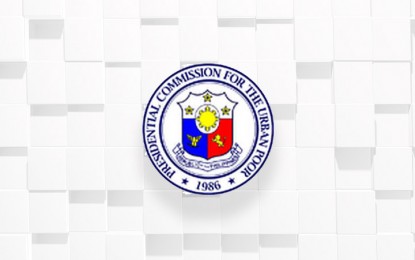
MANILA – The Presidential Commission for the Urban Poor (PCUP) on Wednesday vowed to help informal settler families in Caloocan City resolve issues involving their acquisition of a 2.5-hectare lot owned by a private corporation in Barangay 167.
This was after the Silver Eight Neighborhood Association (SENA) reached out to PCUP chairperson Undersecretary Elpidio Jordan Jr., seeking to expedite their group’s application for accreditation to resolve issues regarding the land acquisition.
PCUP – National Capital Region (NCR) Commissioner Rey Galupo promised to help ensure that the rights of informal settlers would be respected and the accreditation of their organization is accomplished “at the soonest possible time.”
“Ang mandato namin sa PCUP ay tulungan ang ating mga mahihirap na kababayan para mabigyan sila ng magandang kinabukasan sa pamamagitan ng pag-ugnay sa kanila sa mga karapat dapat na ahensya ng gobyerno na makakatulong sa kanila alinsunod sa adhikain ng ating Pangulong Bongbong Marcos na mapabuti at mapaunlad ang kabuhayan ng bawat pamilyang Pilipino (Our mandate in the PCUP is to help our poor countrymen to give them a better future by linking them to the appropriate government agencies that could help them in accordance with the aspiration of our President Bongbong Marcos to improve and develop the livelihood of every Filipino family),” Galupo said in a press release.
Composed of 362 families, SENA was accompanied by a representative of the Caloocan City Housing and Resettlement Office (HARO) under the leadership of former District 1 representative, now City Mayor Dale Malapitan.
SENA president Evelyn Bungay said they have been prompted to seek assistance from the PCUP because they are requesting to be given the chance to acquire the lots on which their residences are located and have been living for the past 13 years or so.
“Kailangan namin ng tulong upang maprotektahan ang aming mga karapatan at makahingi ng kaunting konsiderasyon sa aming kalagayan bilang mga maralitang tagalungsod (We need help to protect our rights and ask for some consideration for our condition as urban poor),” Bungay said.
Under Executive Order 82 dated Dec. 8, 1986, the PCUP serves as the direct link of the urban poor to the government in policy formulation and program implementation addressed to their needs.
Early this month, state-owned Development Bank of the Philippines (DAP) inked an agreement with the Department of Human Settlements and Urban Development (DHSUD) for the crafting of a financing scheme that would provide affordable homes for informal settlers.
DBP President and Chief Executive Officer Emmanuel Herbosa said the DAP would provide the DHSUD with financial and technical assistance to help address the country's mass housing requirements through the construction of one million units annually until 2028.
Under the memorandum of understanding between the two agencies, the DHSUD would identify qualified real estate developers and contractors that would develop the project sites and assist in the preparation of project funding requirements.
The DBP would also formulate a loan program, focused on providing developmental loans for the DHSUD's housing projects.
Results of a Social Weather Stations (SWS) survey from September 29 to October 2 – the first under President Ferdinand R. Marcos Jr. – showed that 49 percent of Filipino families rated themselves poor, slightly higher than the 48 percent posted in June.
Preliminary estimates by the PSA showed that the country's poverty incidence was at 18.1 percent in 2021, which translates to 19.99 million poor Filipinos, up from 17.67 million in 2018.
Poverty incidence is defined by the PSA as the proportion of Filipinos whose per capita income cannot sufficiently meet their basic food and non-food needs.
The Marcos administration aims to bring poverty down to 9 percent or a single-digit rate by 2028. (PNA)
